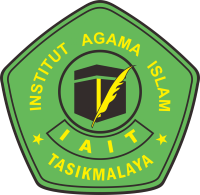Philosophy of Islamic Education: Reflections on Conservative Values, Liberalism, and Democracy
DOI:
https://doi.org/10.61166/values.v2i1.56Keywords:
Philosophy, Islamic Education, Conservative, Liberal, DemocracyAbstract
This article explores three main perspectives in Islamic educational philosophy: conservative, liberal, and democratic, by revealing how each of these views interprets the values and goals of education. The conservative approach to Islamic education, represented by the essentialist and perennialist schools of thought, emphasizes the preservation and protection of existing traditions and customs. The concept of conservative education is more static and less open to new views or ideas. In contrast, liberal education, influenced by classical and modern liberalism, places more importance on the individual and freedom of thought, and seeks to adapt to global economic and social changes by prioritizing rational approaches and open discussion in the teaching and learning process. This model has undergone significant evolution along with historical and ideological dynamics. Meanwhile, democratic education, in the context of Islam, focuses on providing fair and humanizing educational services to each individual, by paying special attention to the development of each child's potential according to their abilities. This concept also supports academic freedom and prioritizes equal rights in obtaining education without discrimination. This study uses a literature review method to analyze these conceptions based on sources such as books, articles, and the thoughts of Islamic educational figures, both classical and modern.
References
Assegaf, Abd. Rachman. Aliran Pemikiran Pendidikan Islam: Hadlarah KeilmuanTokoh Klasik sampai Modern, Jakarta: Rajawali Pers, 2013.
Azra, Azyumardi. Pendidikan Islam: Tradisi dan Modernisasi Menuju Milenium Baru, Jakarta: Logos Wacana Ilmu, 1999.
Dananjaya, Utomo. Media Pembelajaran Aktif , Bandung: Nuansa, 2010.
Mu’arif, Liberalisme Pendidikan, Yogyakarta: Pinus Book Publisher, 2008.
Munir, Abdul. Pengantar Filsafat Pendidikan Islam, Yogyakarta: Sipres, 1993.
Nizar, Samsul. Filsafat Pendidikan Islam: Pendidikan Historis, Teoritis dan Praktis, Jakarta: Ciputat Press, 2002.
Ramaliyus, Ilmu Pendidikan Islam, Jakarta: Kalam Mulia, 2013.
Ridha, Muhammad Jawwad. Tiga Aliran Utama….
Soyomukti, Nurani. Teori-Teori Pendidikan Tradisional, (Neo) Liberal, Marxis Sosialis, Postmoden, Jogjakarta, Ar-Ruzz Media: 2010.
Soyomukti, Nurani. Teori-teori Pendidikan, Yogyakarta: Ar-Ruzz Media, 2010.
Tilaar, H.A, Standarisasi Pendidikan Nasional, Jakarta: Rineka Cipta, 2012.
Zhar, Muhammad. Filsafat Politik: perbandingan antara Islam dan Barat, Jakarta: RajaGrafindo Persada, 1997.















